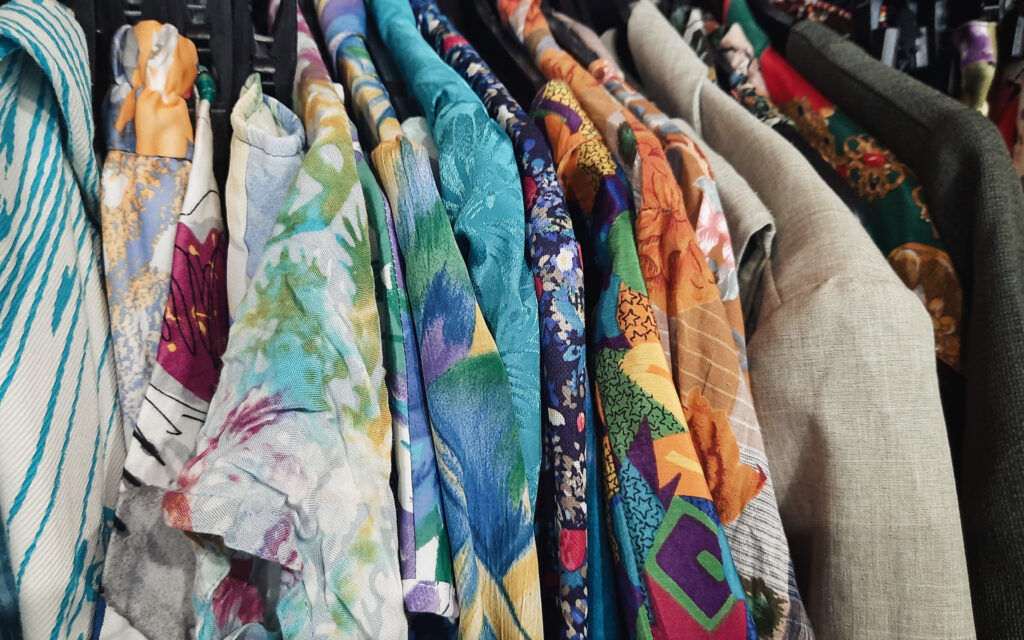Inditex, a fashion multinational born in 1985 in La Coruña, is one of the most associated names with fast fashion. From Zara to Oysho, Bershka, or Massimo Dutti, its brands have filled our streets and our closets.
The combination of affordable prices and designs in line with every trend has led to steady growth (in the 2023 report, Inditex declared sales reaching 35.9 billion Euros, with an increase of 10.4%), but it has also attracted strong criticism regarding its unsustainable and unethical business model.
Criticism of Inditex
In addition to accusing the company of exploiting underpaid workers in Asian factories (where they produce most of their products), many people frequently demand that the company increase transparency.

Not only concerning the production methods of their products, but also the annual production volume (to gauge the extent of overproduction) and the management of unsold merchandise.
In an effort to improve its image and align with public sentiment, Inditex has initiated several projects aimed at demonstrating increased transparency and sustainability, as highlighted in their “climate transition plan” from their 2023 report.
Cáritas and Moda Re-
One of these projects is the collaboration with Cáritas Española and, specifically, with Moda Re-.
Moda Re- is a Social Initiative Cooperative non-profit promoted by Cáritas Española. Dedicated to the management of second-hand clothing, it covers every phase of their handling: collection, preparation for reuse, recycling, donation, and sale.
A key aspect of their initiative is their integration policy, which includes a hiring program specifically aimed at individuals at risk of or already experiencing social exclusion.
With its presence in 90 Spanish cities, it manages to absorb and distribute large quantities of second-hand clothing. In 2023 alone, it collected 42,975 tons of clothing, setting an unparalleled standard in the field of used clothing in Spain.
Inditex not only agreed to a contribution of 3.5 million euros for the period 2023-2025 but also utilized Moda Re- for the creation of Loopamid 6 (in collaboration with the chemical company BASF).
Loopamid 6 is a circular nylon 6, based on textile waste, created for the first time using a textile-to-textile recycling method. Moda Re- contributed to this project by providing the material to BASF for processing.
In 2024, Zara used Loopamid 6 to introduce a jacket to the market with a “design for recycling” philosophy.
The upcoming European legislation
This investment of funds by Inditex brings clear benefits to both Moda Re- and Cáritas, as well as to Spanish society. It promotes integration into the workforce, access to more sustainable clothing, and a reduction in textile waste.
However, Inditex itself gains significant benefits from this partnership.
To what extent does the desire to become more sustainable drive this generosity, and how much does the need to prepare for the introduction of new European legislation drive it?
On December 5, 2023, the Council of the European Union and the European Parliament reached a provisional political agreement on a proposed law that will introduce eco-design requirements for sustainable products (ESPR).
The new regulation will introduce a ban on the destruction of unsold textile products.
In addition, manufacturers will have an extended responsibility: legally, they will be responsible for managing waste disposal.
This proposal stems from the desire to eliminate the practice of burning unsold products from various collections, which epitomizes the unsustainable nature of contemporary fashion.
Could the Second-Hand Market Offer a Solution to the Problem?

Subsidizing a chain of second-hand stores provides an outlet for excess inventory introduced by the company. Alongside investing in Moda Re-, there is now encouragement to repair, exchange, or donate used Zara clothing through the Zara pre-owned platform. Both initiatives aim to relieve legal and moral responsibilities associated with product disposal.
Unfortunately, the solution to textile waste isn’t so straightforward. Despite its many undeniable benefits, the second-hand market has also introduced a new set of ethical and environmental challenges.
The amount of textile products flooding the second-hand market in wealthier regions has reached a point where they are unsellable in their originally intended markets. A significant portion of these products, especially those in less than perfect condition and from lower-priced brands, end up being shipped to less affluent regions.
In these regions, they gradually inundate local markets, negatively impacting the manufacturing industry of the destination country. If unsold, the impact will also be disastrous in areas where they are dumped, buried, or burned.
The Inditex-Cáritas/Moda Re- collaboration isn’t the definitive solution, but every move by a fast-fashion giant towards sustainability is a positive step, especially when it benefits the community at large.





